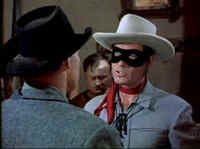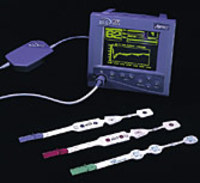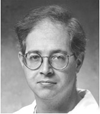The anesthesia world is spinning up to a tizzy over the upcoming theatrical release of the movie "Awake." For those of you living "off the grid", Awake is a story about a poor victim who has the extraordinary misfortune to be subjected to cardiac surgery awake/paralyzed. None of us have seen this movie, but advanced word is the anesthesia folks aren't favorably depicted.
I am really, really looking forward to its release. For a lifetime, I have wholly devoted myself to my craft; medicine and anesthesiology. While I have not minded being in the background behind my surgeons, I have, over thirty years, grown tired of the surgical attitude that what I do is trivial; of course it is, because if it weren't, well, they'd be doing it themselves, wouldn't they? And if I and my colleagues had been made of better stuff, we would have gone into surgery. What a load of nonsense.
One slip of the surgeon's knife, and a patient's meaningful life is over. Just so, one mistake with a syringe of vecuronium, and a patient is dead, or perhaps, worse than dead... The truth is, if I don't practice smartly and on form, patients will suffer and perhaps die in ways both obvious (aka "Awake") and subtle (ie high blood glucose leading to higher post-op infection rates) It's about time everybody understood it. It doesn't help when colleagues (especially CRNA's, I note over the years) minimize what they and we do; "oh you're going to take a little nap while your (big strong) surgeon operates on you." I even avoid the use of the word sleep to describe what I do. I usually say "sleep is what you do at night. It is free and natural, but if your surgeon were to attempt to operate while you are asleep, you would wake up in great pain. What I provide is drug induced unconsciousness, not unlike a temporary coma. You will not wake up until I reverse the process. It is a safe procedure in my hands, and I will stay with you the entire time to maintain this state and see you safely through." I have no tolerance for anybody who suggests that I am scaring patients like this; it is simple truth, which is the stuff of informed consent.
For
every patient that says "oh, doctor, anesthesia is soooo important," I
have ten patients who believe that I belly up to the table with a syringe of clear
stuff, inject it, and walk on to the next room, or out  for a cup of
coffee... ("who was that masked man? I don't know, but he left this
bill pinned to my dickie...")
for a cup of
coffee... ("who was that masked man? I don't know, but he left this
bill pinned to my dickie...")
A little patient apprehension about their upcoming anesthetic is a good thing-it's appropriate. And if the patients get the idea that who is giving their anesthetic; their education, dedication, compassion and diligence, matter to their outcome, well, then, so much the better. Because it's true.
Where I come from, there' was a saying; "a good surgeon deserves good anesthesia. A bad surgeon needs it." I can't remember all the times I've had to hold a patient together physiologically while the surgeon tried to work his way out of a nasty situation. I have auscultated the hearts of 20000 patients to avoid missing that once-in-a-lifetime patient with critical aortic stenosis who would otherwise die on anesthesia induction (I've found 2). I've sniffed around thousands of diabetics for a whiff of the coronary artery disease that might progress to a fatal perioperative MI. I've sat on the floor of the holding area hundreds of times looking up at anxious three year olds and their parents, quickly forging a rapport that I could leverage into a less scary induction.
I can deal with healthy patient fear; it just takes a little time, some patience and explanation. I hope that every patient for the rest of my career has the good sense to ask me what I'm going to do to keep them alive, and how I'm going to prevent the excruciating agony of their being awake "under the knife", and then I hope they look me in the eye as I explain it all, to be sure they see a soul they can trust.
And if anesthesia leadership on both sides of the aisle (AANA and ASA) settle for some bland reassurances about anesthesia diligence and try to undermine the message of "AWAKE" by pointing out the inevitable inaccuracies they will find in the movie, than they (and we) ought rightly to be banished to the back benches of the medical pecking order.
 And if Aspect medical makes a few more bucks on their BIS monitors along the way, so be it; their box
isn't perfect, but it isn't bad,
either...
And if Aspect medical makes a few more bucks on their BIS monitors along the way, so be it; their box
isn't perfect, but it isn't bad,
either...
I say, "bring it!" I'll be there on opening night with a big bag of popcorn to assuage my vicarious anxiety...
 Mitch Keamy is an anesthesiologist in Las Vegas Nevada
Mitch Keamy is an anesthesiologist in Las Vegas Nevada
 Andy Kofke is a Professor of Neuro-anesthesiology and Critical Care at the University of Pennslvania
Andy Kofke is a Professor of Neuro-anesthesiology and Critical Care at the University of Pennslvania
 Mike O'Connor is Professor of Anesthesiology and Critical Care at the University of Chicago
Mike O'Connor is Professor of Anesthesiology and Critical Care at the University of Chicago
 Rob Dean is a cardiac anesthesiologist in Grand Rapids Michigan, with extensive experience in O.R. administration.
Rob Dean is a cardiac anesthesiologist in Grand Rapids Michigan, with extensive experience in O.R. administration.
great post. i love your attitude towards the movie, it is really what we should all be thinking. Instead of being afraid we should see this as an opportunity. In looking through old Anesthesiology articles from the 1940's I came upon a speech given at the NYC world's fair in July 1940 by Howard Haggard a doctor and researcher from Yale. He spoke about "the place of the anesthetist in american medicine." It was amazing because it was as if it was written today. He presented the same issues and conflicts we face in that the better we do our job the less noticeable we end up appearing. If you haven't, I definitely recommend reading it. His main solution to this "problem" is in reshaping public opinion to understand the gravity of our work. He gives examples from other fields (i.e. surgery) that were once considered irrelevant and how by working to shape public perception they are now perceived with such stature. I think this movie is a great opportunity to work with the public, educate them about the realities of anesthesia and how amazing our work is that we can keep them both alive and free of pain while the surgeon messes around with their insides. The ASA, instead of sending out forboding emails to its members about this movie should be out there engaging the public. (July 1940, Volume 1, Issue 1)
Here is the link: http://www.anesthesiology.org/pt/re/anes/pdfhandler.00000542-194007000-00001.pdf;jsessionid=HvpJy71Kvsvq3Tnt2pM2fCLNWTD19G6b0yFcXGc9YR23Nntj7TwQ!1821113646!181195629!8091!-1
Posted by: shomama | November 05, 2024 at 07:28 PM
yup. the pdf file of that article sits on the desktop of my old I-book for inspiration; I've been thinking about writing a post about it for a bit, but you just beat me to it! It's fun, too, to go through those old issues, eh? Thanks for stopping by; nice to hear from you.
Mitch
Posted by: mkeamy | November 05, 2024 at 08:16 PM
Thanks for this. As a double heart valve surgery patient, I'm always on the lookout for intersting information. This definitely qualifies.
Cheers,
Adam
Posted by: Heart Valve Surgery | November 06, 2024 at 04:12 AM
Love this post. Please submit it to the next SurgeXperience (http://surgexperiences.wordpress.com/2007/11/02/surgexperiences-108-to-be-hosted-at-aggravated-docsurg/)
Posted by: rlbates | November 07, 2023 at 04:17 PM
> [..] I have ten patients who believe that I belly up to the table with a syringe of clear stuff [...]
... which is clearly wrong -- everybody knows that it's a syringe of White Stuff.
:-)
Cheers,
Felix.
Posted by: Felix Kasza | November 17, 2023 at 01:53 AM
hmmm...would you believe I use a lot of etomidate? Thanks for stopping by.
Posted by: mkeamy | November 18, 2023 at 08:18 AM
In the flip-side of your good surgeon/bad surgeon idea, it's easy to appreciate the difference between good and bad anesthesia as well.
And, as a result, to recognize that there's a lot more to it than big syringe/small syringe. I've been lucky to have worked with by far more excellent anesthesiologists than the other kind. I think I've let them know how much I appreciate it. I hope I have. Surgery is much easier when patients hold still; more gratifying when they wake up.
Posted by: Sid Schwab | November 22, 2023 at 06:39 PM
Yes, it is difficult that the patient is unconscious during our care, and after all goes well they wake up feeling fine and thinking that nothing significant happened. I think it is important that we take the time to develop a rapport with our patients before and after their anesthesia.
Posted by: RichardH | January 05, 2024 at 04:43 AM
I absolutely agree. I wrote about the preop interview early in the blog; you can find it here; http://mkeamy.typepad.com/anesthesiacaucus/2007/06/seeing-patients.html
Thanks for stopping by!
Mitch
Posted by: mkeamy | January 07, 2024 at 02:13 PM
I wish I had enough money to fly you to the East coast to do my anesthesia! In trying to schedule necessary, but not emergency, abdominal surgery which requires general anesthesia, I requested to speak to the anesthesiologist. I have only had general anesthesia once in my life, followed by 48 hours of vomiting. I did not want to repeat the experience with abdominal sutures. I was told that the anesthesiologist would speak to me just prior to surgery and had to threaten to take my business elsewhere to get a phone call. I asked about TIVA, since I had read that there was much less PONV, and was told by the anesthesiolgist that there would be a much greater chance of interoperative awareness. The anesthesiologist then said that he would make sure to give me enough midazolam so I would have amnesia and not remember the awareness. My choice now seems to be severe PONV or "going under" believing that I will be aware and in pain for at least part of the surgery. I guess I should be grateful that the surgery is not an emergency and I can postpone it for a while. I always thought that the anesthesiologist would be my best friend in the operating room, but now I'm just afraid of them
Posted by: Maureen | July 11, 2024 at 12:42 PM
There is no reason to be afraid of TIVA; it is a good technique and isn't really more likely to cause awareness. (which is exceedingly rare, in any case) If you are particularly anxious about awareness, ask them to use a BIS monitor; the data suggests that BIS monitored patients don't have a lower incidence of awareness than carefully supervised patients without BIS (who have a very low incidence of awareness already), but I use it frequently as another (albeit imperfect) monitor of consciousness. If your previous anesthetic was more than 6 or 7 years ago, you have a decent (but not 100%) chance of not being nauseated post-op; just tell your anesthesiologist that you have had prior nausea issues and he will most likely avoid nitrous, and use a combination pharmacologic anti-emetic strategy. Nausea lasting 48 hours is likely due to the narcotic analgesic that you'll need post-op anyway. If your hospital supports an acute pain service with epidural infusion anesthesia, that might help as well. In any case, if you didn't get a good feeling from the anesthesiologist on the phone, discuss this with your surgeon, and see if there is a member of the group that she recommends that you could request; everybody is different, and sometimes a little doctor shopping is in order until you find somebody you're comfortable with..
Good luck!
Posted by: mkeamy | July 11, 2024 at 08:26 PM
Thank you so much for your response. I wish I could find a surgeon and an anesthesiologist who are as reasonable and reassuring as you. From the anesthesiologist's tone of voice, I got the impression that he was annoyed by my asking for TIVA and was trying to frighten me away from it by the awareness comments. He said that he doesn't normally use it. The surgeon then called and said that he had heard from the anesthesiologist, and that in his (the surgeon's) opinion, I could be risking the outcome of my surgery by requesting TIVA, as he and the anesthesiologist had a long-standing surgical routine worked out based on gas inhalation and my request would alter that. He added that he could not understand why I would object to the "minor discomfort" of nausea and vomiting as the result of the surgery. This is the second surgeon I have consulted, as the first refused my request to speak to the anesthesiologist other than just prior to the surgery. I would love to conduct some "doctor-shopping", however it is a two-fold obstacle - first find the surgeon who is even willing to let you have the conversation and then start running down the list of anesthesiologists. I always preface my request with an explanation of my history and a statement that I'm not trying to tell them how to do their job, I'm just trying to get the best result for me. Unfortunately, I'm getting some veiled (and not so veiled) hostility in the responses. I've been told that I should not be doing research or talking to others, and that I'm asking way too many questions. They're not all like you - I though you might like to know that, if you didn't already.
Posted by: Maureen | July 12, 2024 at 09:23 AM
Thanks Mitch! While I still believe that I am a (anesthesia) customer, I like your attitude. I am one of those hard to anesthesize, anti Versed zeolots that you guys have the misfortune to interact with 4 or 5 times a year according to one source. There is hope. I just have to make sure I'm working in Las Vegas next time I need an anesthesia provider...
Posted by: jm | November 30, 2023 at 02:54 PM
It is very important to have a good anesthesiologist in the OR. Any surgical procedure that requires anesthesia, such as hip replacement surgery with a Pinnacle device, does have increased risks such as heart arrhythmias, liver toxicity, and pneumonia. These could make a case for a potential DePuy Pinnacle lawsuit. Thanks for the information!
Posted by: Greg Fraser | May 13, 2024 at 03:56 PM